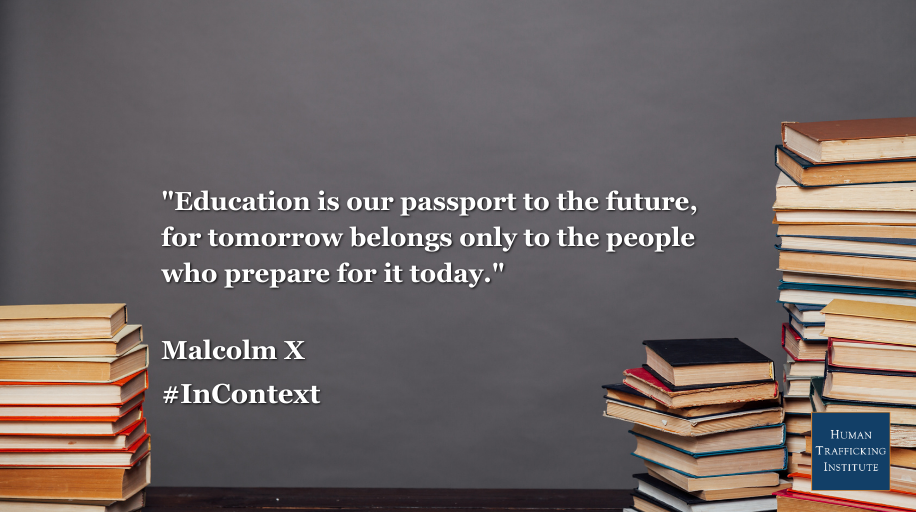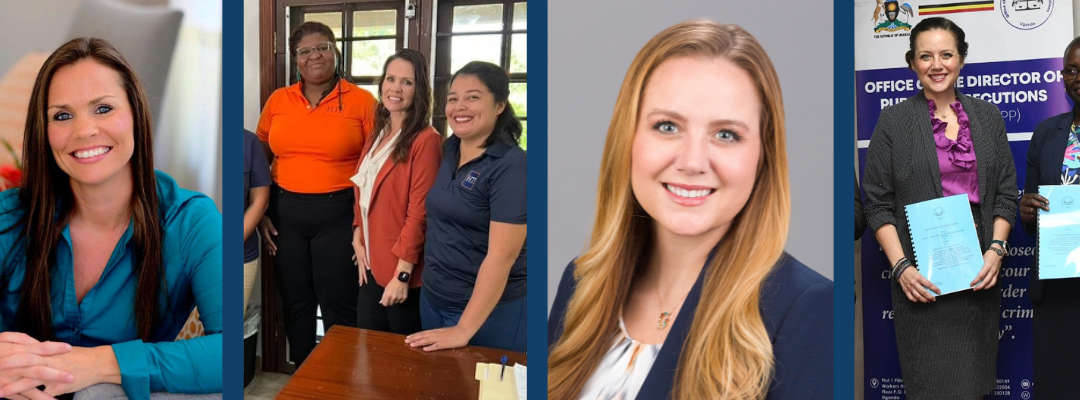Malcolm X (1925 – 1965) embodied the true meaning of resilience, leadership, and transformation. At a time when African Americans experienced racial terror and economic exploitation, he overcame discrimination, violence, and trauma and rose as one of the most influential African American philosophers of the 20th century. Malcolm argued for armed self-defense, Black power, and Black racial pride. For him, education was one of the foundational pillars to achieve excellence and self-respect.
During a speech in New York (1964), Malcolm invited his fellow African-Americans to take charge of neglected schools. Malcolm noted that the U.S. educational system was failing their communities because educational leaders were unwilling and unable to understand African-Americans and provide them with the resources needed to improve educational levels, making the U.S. education system substantially unequal among races. To achieve a better system, he argued, African-American schools needed to have leaders who had been impacted by inequality, understood their needs, and had personal interest in the success of Black children. In his own words, “we want black principals and black teachers with some textbooks about black people . . . acceptable to our people before they can be used in these schools.” For Malcolm, an education that was self-led and community-centered was a tool to obtain freedom, equality, justice and dignity.
Malcolm’s interest in improving education for all African-Americans stemmed from personal experiences. As a child, he experienced multiple forms of violence and discrimination. Had he had teachers who understood his struggles at home, in his community, and at school, perhaps he would have graduated from high school. Instead, he had teachers who often told racial jokes and comments that disparaged his intelligence. In eighth grade, for example, he was a class leader and an excellent student; yet, his teachers did not support his educational and career aspirations. When he expressed his desire to become an attorney to one of his teachers, his dream was quickly shattered when the teacher encouraged him to be realistic and instead pursue a career in carpentry. While Malcolm remembers this incident as one of many incidents where teachers were oblivious and ignorant, and not blatantly racist, he wished for future generations to find in educational settings what he found through self-discovery as an incarcerated teenager years later.
Just like education was a pillar for the civil rights movement, education is similarly a pillar for the anti-trafficking movement. For years, anti-trafficking advocates have proliferated educational materials raising awareness on human trafficking. While classes, workshops, and other types of training have been useful in highlighting human trafficking as a pressing matter, some of the content has also served to perpetuate myths and misconceptions, amplifying systems of oppression.
For example, the overemphasis on sex trafficking has provided sex trafficking victims with protections and services, but the hegemonic narrative shared in sex trafficking materials has ignored the needs of labor trafficked persons and sex trafficked persons from gender minorities or neglected communities. Advocates have also focused on reaching professionals rather than reaching potential victims. While these materials have helped identify and assist trafficked persons, they have ignored the communities they are trying to serve. Lastly, training materials have highlighted individual choices, such as migration or sex for a fee, but less attention has been paid to the systems that drive people to make those choices. Just like Malcolm reflected upon, evaluated, and provided alternatives for education, anti-trafficking advocates should reflect upon and evaluate the lessons, the audience, and the effects of the mainstream anti-trafficking educational materials.
Education is an integral part of the fundamental framework used to combat trafficking. As such, it should be survivor-led and survivor-centered, paying equal attention to labor and sex trafficking, and focusing on structural systems that drive individual choices.
As Malcolm stated during his speech:
“Education is an important element in the struggle for human rights. It is the means to help our children and our people rediscover their identity and thereby increase their self respect.
Education is our passport to the future, for tomorrow belongs only to the people who prepare for it today.”




